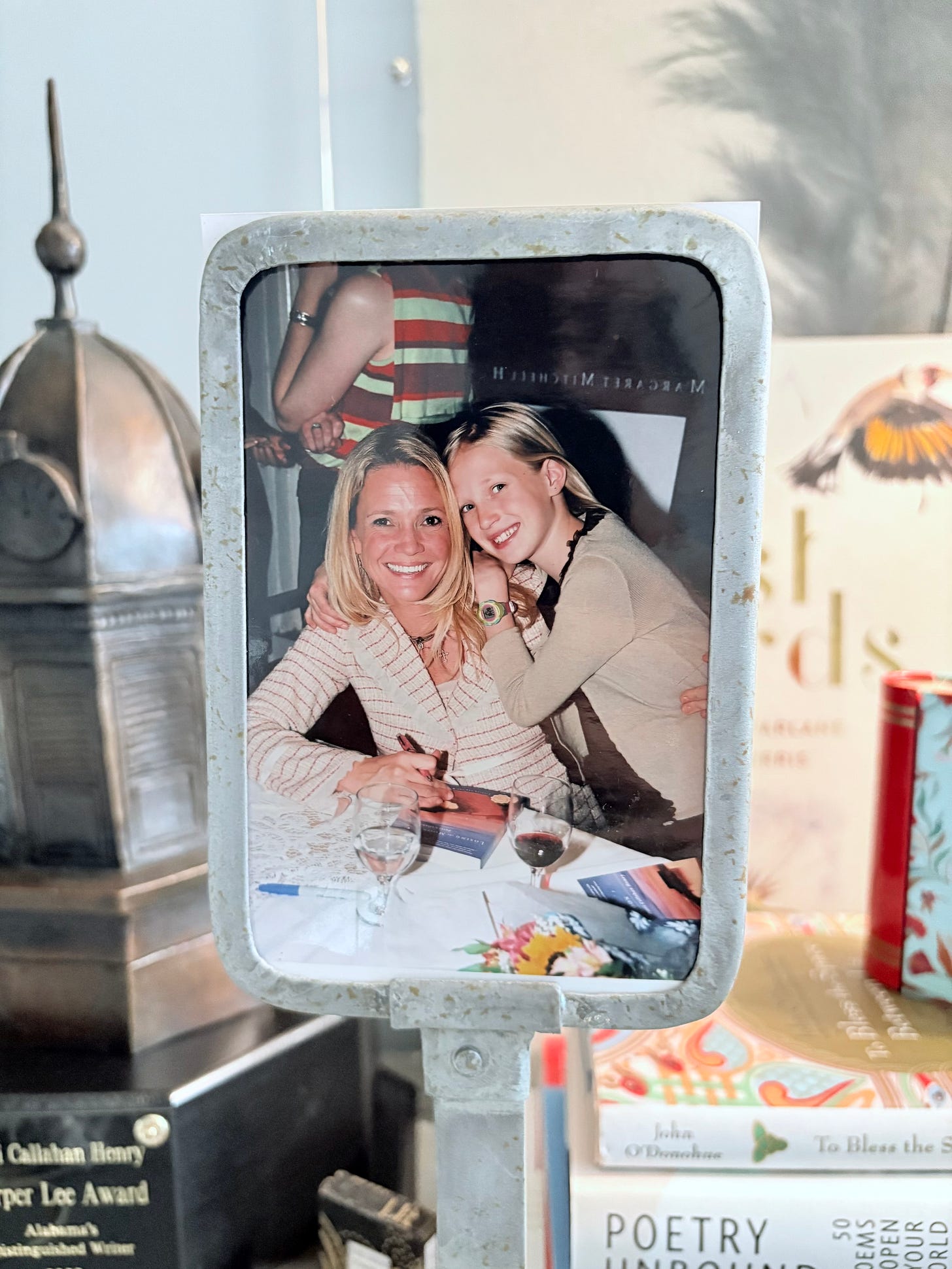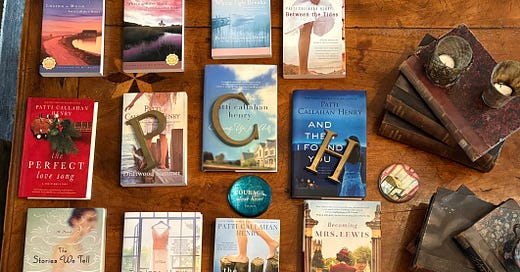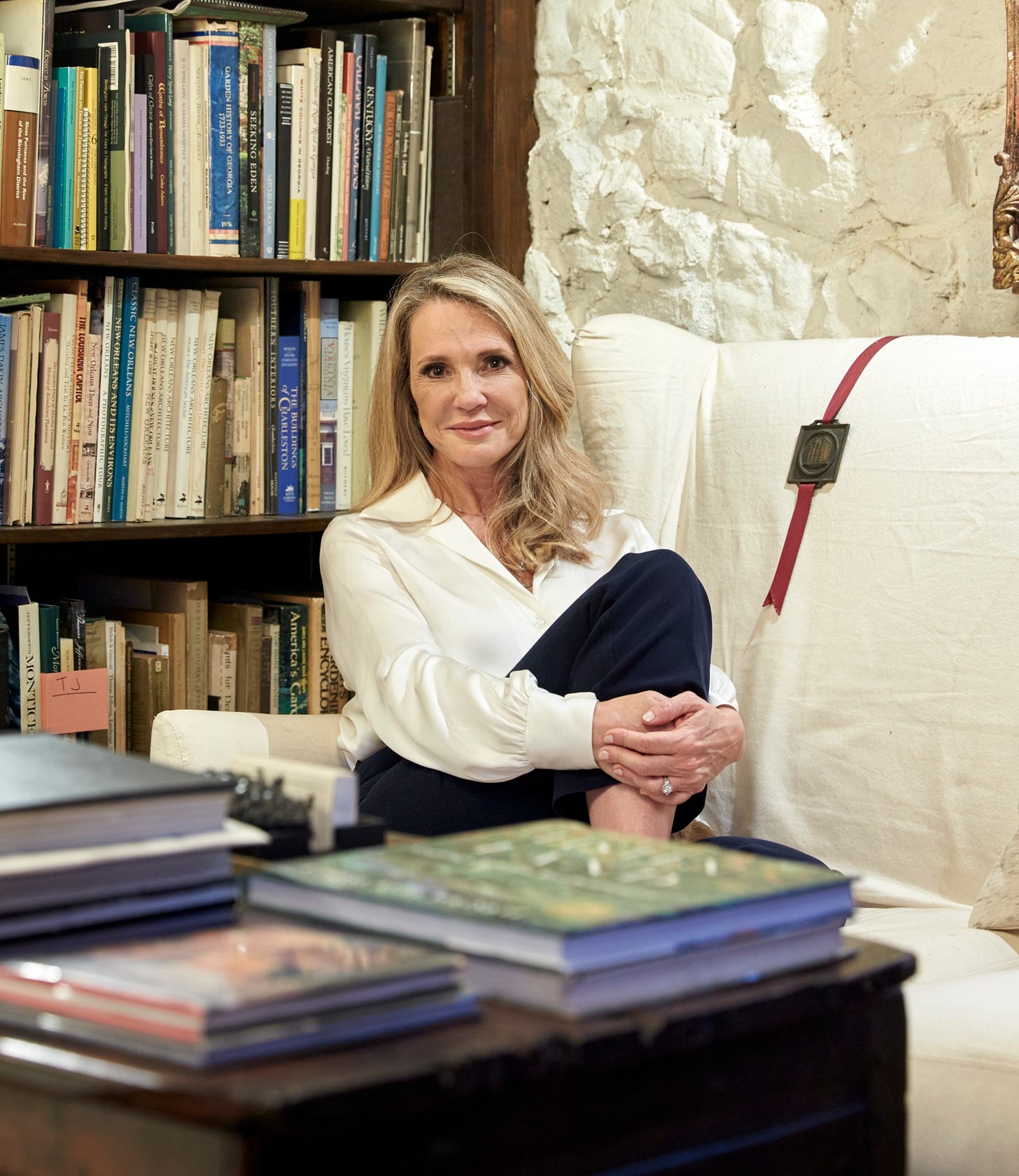It has been twenty years since my first novel, Losing the Moon, was released in 2004. That was eighteen books ago when I thought I just wanted to write one book, when I desperately desired to create the thing that sustained me through the years: a story.
When I sat down with absolute naïveté and pure obsessive desire to pen my first novel, I was a Clinical Nurse Specialist in Pediatrics, I had three children under six years old, and I didn’t know a single person in publishing or writing. After playing dollhouse with my daughter who declared she wanted to be “a writer of books” when she grew up, I informed her that no, that’s what I want to be when I grow up. She enlightened me with the fact that I was already grown up. This was the “aha” moment that changed my life. I would not put it off one more day. This, right in front of me, at thirty-five years old, was my only life.
I signed up for my first writing “Evenings at Emory” night class in 1999, and my life has changed dramatically since that day, as does any life when we commit to something we love. And I love story. Always have. Now, much of my life and time is shaped around story, writing, publishing, and the simply amazing reading community.
If I look back, which I am doing now, I can see that the things I loved as a child are the very things I am doing now, the very things that have influenced my decisions and formed my life. I was lost at times. It happens to all of us. And I wish I’d stared directly into my own eyes and not looked for approval in someone else’s idea of my life.
I’ve spent time this twentieth year of being published in gratitude, but also wondering — what do I wish I’d known when I first decided to write a book? Here I am writing down my list — a “20 for 20” list of things I wish someone had told me when I first terrifyingly admitted, “I want to write a book.” (Not that I would have listened).
I’ve perused old journals, old notes, old frustrations, and even speeches where I thought I had some answers. I’ve gathered some hard knocks of knowing, and of course, some writing tips that have saved me in the harder days. From the practical to the esoteric, from the gritty to the imaginative realms, here are some things I wish I’d known.

This list isn’t complete, because nothing is. I’ve come back to it numerous times adding and changing, but here it is! And this much I know: there is more I don’t know than what I do know.
1. The secret is this – there is no secret. I want one. You want one. There isn’t one.
2. Creativity is an act of wholeness, not comparison: Being aware and present to the world and all its joy and despair is woven into your individual experience. Comparing yourself or your work to another will only lead to an intellectual application of rules and outside opinions that will drain your work dry of anything inspired by you, your emotions, your desires, your intellect, and your life. Your work is your response to the world. Let it be yours.
3. Creating through the written word is worth it – show up for it. Show up with your whole self and not as a sideshow that you don’t really mean. Your writing will know if you are cheating it with half-hearted attention. Love nourishes people and stories, both relationships are living things that thrive with attention.
4. Tell the truth, even in fiction. Even if the reader can’t tell that you’re faking it, the story will suffer.
5. Poetry and nature will nourish not only your writing but your soul. When I am lost (which is often, and you will be too), poetry and nature nearly always find me, or possibly help me find myself. As the profound poet, Mary Oliver writes, “Whoever you are, no matter how lonely, the world offers itself to your imagination….over and over announcing your place in the family of things.” Go outside. Walk around. Be quiet.
6. There is something greater than us working through our creativity. Call it God, Love, or Divine energy, but the more you let it happen, the better your work will become. Julia Cameron says it best in one of my favorite books on creativity, The Artist’s Way, “Art is not about thinking something up. It is about the opposite — getting something down.” I’d add – “And make it about something that matters to you.”
7. Use your writing to make meaning of what baffles, hurts, or humbles you. We are a meaning-making people. Humans need story to make meaning out of this painful, wonderful, confusing, and stunning life. As Angus Fletcher writes in Wonderworks, “Story is an invention to overcome the doubt and pain of well…being us. Being human.” Know this and use it in your work.
8. The most interesting stories grow from your curiosity. In other words, notice what you notice. Material for your creative work is everywhere if you are paying attention. Staying curious is our way through fear, loathing, doubt and all the rest of the gnarly things that come with writing. Curiosity also keeps us writing about the things we care about instead of the things someone else tells us to care about. Curiosity is the answer to so many of our writing woes. Sometimes I imagine sitting in a library as vast as the world and then choosing a book, any book. What would that be about? Maybe it’s the one I want to write.
9. The muse shows up when you do. Call it what you will, but inspiration doesn’t chase you down and scream at you. You must sit and do the work.
10. Build your team with care, intuition, and attention, not out of desperation. The biggest mistakes in my career have come from choosing people to work with out of desperation. I know you want an agent NOW, and a publisher NOW, so did I. But making those choices out of fretful impatience will only need to be undone later.
11. Protect your writing time and your writing space. These are sacred. Sacred, do you hear me? If it’s important enough to do, it’s important enough to protect. Build solitude and space into your life — imagination flourishes there. These can be hard decisions — but something must go. You don’t find time, you make time. Don’t fill every second with noise. Listen, I had three kids in five years. I know that this quiet-time isn’t always possible, but when it is — do it.
12. When you feel stuck, remember this: more will be revealed. My extraordinary agent, Meg Ruley says this to me when I’ve hit a dead end, when I’m halfway through and can’t see the shoreline, when we can’t make a publishing decision, at least not yet. Maybe it’s character motivation, maybe it is a subplot, maybe it is your ending, or maybe it is a business decision. Take the time and know — more will be revealed when you commit to understanding.
13. Nothing is wasted. You will write loads and loads of bad pages and words and sentences, but nothing is wasted. I don’t say this to comfort myself for the abandoned books and ripped-up chapters, but because it’s true. We write to find what we want to write, and sometimes it is total garbage, but that’s okay because at the very least you did the thing you meant to do today: write.
14. Don’t listen to advice from those you don’t respect. Everyone has an opinion. Everyone has an answer or an outline or a magic wand. Only listen to those whose work and life you respect, and smile at the rest.
15. Always carry a notebook (your phone notes app will do). The last paragraph of a book came to me while walking and I dictated it into my Notes app. A thought, a tingle, a sudden whisper, and BOOM, there’s a story idea that floated away because you didn’t catch it when it whispered to you.
16. Find the stories and subjects that startle you, change you, and challenge you. If it scares you, write about it. Allow what comes to come. Don’t follow the trends or chase the hot new thing. Notice what you notice, and write about those very things. Writing is hard and magical, and it’s a choice, and it won’t always be easy. Know this.
17. Your character needs to want something. Know what that is, and how desperate they are to get it. Therein lies the seeds of your story. There are so many great books about the craft of writing, and so many fabulous inspirational books on creativity (I am listing my favorites below), but this one piece of writing advice has saved me from despair more times than not.
18. Read everything all the time. Always. Never stop reading. It is the lifeblood for your own work. Read beautiful things, read poetry, read short stories, read long essays and inspiring notes. Read.
19. You won’t reach the perfection of the story you first imagined, and that’s okay. You will find something else, and that will be your story. Striving for or expecting perfection isn’t the same as making the story the absolute best it can be. If you spend two years on chapter one, you’ll never find chapter two and you’ll never find what the last chapter might become.
20. Writing is an art and a craft. You will most likely be better at one than the other. Know what this is for you. There are exceptions like Steven King and Maggie O’Farrell, but rarely is an author good at both. Writing is a calling, and an obsession, and the learning never ends. Story is alive; story is a river; story is a universe both experimental and long-lasting. It is what we’ve used to communicate with each other since we could write on cave walls. Therefore, to believe it is a static thing with a simple explanation will do you no good as you try and find the stories that matter to you. An art, yes. A craft, yes. Learn both.
Okay, so I cheated a little bit because number 20 is crammed full, but I’m here to tell you that the friendships, inspiration, and lifelong relationships you will find while committing to a life of creativity is worth every day you tend to your craft.
That’s all for now, my friends. I hope you enjoy the end of this year as we look forward to a shiny new year ahead. More from me in 2025!
Love,
PCH
ABOUT PATTI CALLAHAN HENRY
New York Times Bestselling Author and Podcast Host
Patti Callahan Henry is a New York Times, Wall Street Journal, USA Today, and Globe and Mail bestselling author of seventeen novels and a podcast host. Patti is the co-host and co-creator of the popular weekly web show, podcast, and online community, Friends & Fiction.
She lives in Mountain Brook, Alabama with her husband. Her newest novel, THE STORY SHE LEFT BEHIND will be released on March 18th, 2025
Be sure to follow Patti on social media and visit her website for the latest updates and announcements!







Such wonderful advice. Thank you for sharing it, Patti! Love the Mary Oliver quote. “Whoever you are, no matter how lonely, the world offers itself to your imagination….over and over announcing your place in the family of things.” Beautiful & poignant. Happy New Year!
You are a writer I respect, and this advice is like gold to me. Thank you! And congratulations non twenty years of writing!